IAC Welcomes New Members and Discusses HSE University Development
On December 1, key areas of HSE University’s recently adopted strategy were presented at the extended meeting of the International Advisory Committee. Outgoing and new members of IAC learnt more about the University’s initiatives in human capital and AI research, as well as about its plans to build a Master’s Engineering School.
In his opening words, Rector Anisimov thanked the new members of the IAC for agreeing to join the committee and to share their knowledge and expertise in higher education management.
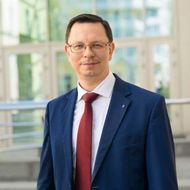
Nikita Anisimov, HSE University Rector
‘We believe that direct international contacts are the best way for the continuing development of the academic environment. We strive for an open dialogue with our partners and colleagues, which we have in over 70 countries around the world. Over 29 years of existence, our university has undergone major changes and has grown from a small graduate school in social and economic sciences into one of the largest multidisciplinary universities in Russia with a high international reputation. We can say that right now we are on the verge of a new stage of development. In October, we joined a new national project, Priority 2030 initiative, aimed at boosting the competitiveness of Russian universities in the global education market. Last week, the Russian government approved our development programme until 2030. Our plans include further internationalisation and digitalisation. We want to move to a new quality of growth, with multidisciplinary strategic projects becoming the drivers of our research and teaching. We are facing a truly difficult task and count on your knowledge and expertise. New members will be able to provide a fresh perspective, while those who have served on IAC for many years know the workings of our university.’
As four long-serving members of the IAC—Philip Altbach, Timothy Colton, Patti McGill Peterson, and Daniel Treisman, have stepped down at the end of their term, new international higher education experts will take their place.
Key Aspects of HSE University Development Strategy
First Vice Rector Vadim Radaev spoke about HSE University’s strategy in the framework of the Priority 2030 initiative launched by the Russian government this year to support the leading universities in their development. He outlined the challenges the university is facing and opportunities it can take advantage of, specifically focusing on new online learning and collaboration initiatives HSE University has launched since the start of the pandemic.
‘We have effectively moved to online and blended format in research, education, and administration. We also have rather good prospects in terms of technology transfer and commercialisation of R&D outcomes due to the combination of our different competencies in social sciences and digital technologies. We strive to apply a multidisciplinary approach in research and education. The digitalisation helps us ensure equally high-quality of education, research activities and services in Moscow, St. Petersburg, Nizhny Novgorod and Perm. It has also allowed us to start a new programme entitled ‘Single Campus—Four Locations’.
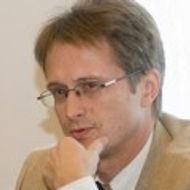
Vadim Radaev, HSE University First Vice Rector
Our key goals include creating high-quality human capital in Russia, generating, and disseminating advanced technologies and knowledge, and securing Russia’s strong position amidst intensified global competition.
We benchmark ourselves against several international universities and we believe that HSE University can compete on a par with top global academic institutions, while also maintaining and promoting its national leadership in a majority of fields.
We are extending our network of domestic and international partners. We are also building close connections with leading research institutions of the Russian Academy of Sciences and with our university partners.
Moreover, the university is planning serious changes in educational programmes and enrolment. We envisage a moderate increase in the number of full-time students, whereas the number of CPD, online and partner university learners should grow threefold. We will try to involve 100% of students in project-based learning and help them gain additional competencies through micro-decrees, entrepreneurship education, and service-learning projects.
Since HSE University has always seen human capital as its major asset, the university will be building a new system of professional tracks for the faculty—a teaching track, a practitioner track, and a research track—and will be offering longer contracts to those who comply with higher academic standards. HSE University expects the number of globally recognised experts working at HSE University to increase at least twofold within the next 10 years. In addition, the university plans to attract an increased number of practitioners who can give students practical competencies. A recent initiative, Digital Professors, has already allowed HSE University to attract about 100 researchers from around the world to lecture online on various subjects.
Being on the frontier of science and research and building world-class excellence centres are HSE University’s major priorities. So, the university development strategy includes increasing the number of international labs and publications in internationally recognised journals.
Five areas of focus will include human capital, digital transformation, evidence-based urban development, S&T and socio-economic forecasting, and Social Policy for Stable Development and Inclusive Economic Growth.
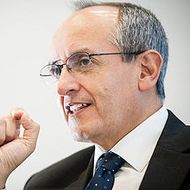
Francisco Marmolejo, Education Advisor, Qatar Foundation
‘It is great that HSE has a significant number of engagements. Hopefully, HSE can be as strategic as possible in developing and evaluating periodically the value of these partnerships and keep the ones that are effective. This will require establishing metrics to evaluate the effectiveness and contribution of these partnerships.’
From AI to a Master’s Engineering School: New Projects at HSE University
Professor Arzhantsev, Dean of the Faculty of Computer Science, presented the newly formed Centre of Artificial Intelligence that will focus on doing basic research, developing solutions for industry partners, and creating a library of open-source solutions. Its industry partners include Yandex, a major Russian bank SBER, and a telecom giant MTS. The centre, which started working in November 2021, brings together several teams from HSE campuses and divisions that are involved in around 25 projects overall. The project focuses on the Russian market and its performance indicators include publications in top peer-reviewed journals and A-class conferences, development of AI-based intellectual property and frameworks, lecture courses, positions for doctoral students, and more.
Vice Rector Lilia Ovcharova and Deputy Vice Rector Maria Nagernyak spoke about the Human Capital Multidisciplinary Research Centre that functions as a consortium of four organisations engaged in human capital studies in Russia. The centre aims to promote Russian academic leadership in the area, carry out projects addressing the challenges that Russia is facing, and create various initiatives to integrate the latest research into education and foster the development of human capital.
Finally, Sergey Aksenov, Deputy Director of HSE MIEM, presented a new HSE University’s undertaking—a plan to create a Master’s Engineering School. The Institute does research in cybersecurity, computer modelling, AI, IoT, quantum technologies, and other related areas and already relies on a project-based learning model at its Bachelor’s school with student teams solving practical tasks for MIEM’s industry partners. This enables students to gain soft skills and pursue individual learning tracks. The university plans to develop this project into Master’s school with larger-scale projects financially.
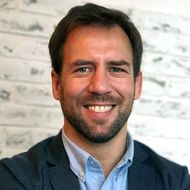
Sergey Aksenov, Deputy Director of HSE MIEM
‘MIEM is a logical place for such a school. We have a history and tradition of such training and already have such programmes at Bachelor’s level. One example of our students’ projects is the digital platform we use to manage project-based learning. It was created by students themselves. We were acting as a customer for the student project. Now we need to expand our collaborations but we already have a starting base in terms of equipment and human resources.’
Professor Krouk, Acting Director of HSE MIEM, noted that as new fields emerge, a greater deal of efforts focus on developing new technology that affects many different spheres. ‘HSE University is the best place to develop such combinations as engineering plus biotechnology; engineering plus linguistics; or engineering plus sociology or even philology. That’s why we are creating an engineering school. It will allow us to bring together human and financial resources and install state-of-the-art equipment to deal with new types of tasks. HSE has great potential and we need to use this potential to develop skills of our engineering students.’
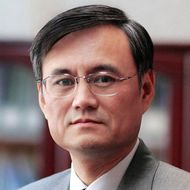
Qian Yingyi, Professor at School of Economics and Management, Tsinghua University (China)
The key thing for HSE University is to take full advantage of the humanities and social sciences, where HSE has strong faculty and excellence. It might be beneficial to mix engineering students with MBA students so that they work on projects together. This type of experiential learning is very useful both for engineering and MBA students.
My second suggestion is that it’s important for engineering students to gain skills outside of engineering, particularly in communication. At Tsinghua University, all engineering students are required to take a two- or three-year writing and communications course, as we found this very important for our students. MIT, for example, requires up to four courses in communications.
Alejandro Hernández mentioned that ITAM has gone through a similar process of creating an engineering school at a social sciences university. ‘The reason we did it is because we believe that big challenges to social sciences and humanities will be associated with technology. One of the questions we faced, however, was whether we should stay in electronics and computer science or if need to go into mechanical, hard engineering in order to gain credibility as an engineering school. In terms of curriculum, we’ve faced resistance from engineering students to make space for courses in other areas. But I can say that we’ve had more success in blending engineering and business. So, something that needs to be studied carefully is how to blend the subjects together.’
Before the meeting was adjourned, the outgoing members of the IAC shared their perspective on the work of the committee and HSE University’s development.
Philip Altbach, Founding Director, Center for International Higher Education at Boston College
I have tremendously enjoyed my participation in the Advisory Committee. HSE is a remarkable institution. It’s done during the years I’ve been on IAC amazing things in terms of growth and expanding the scope of the institution, some of which I was a bit sceptical about, but you seem to have done it successfully. It’s been a huge pleasure and an honour to work with the management team of HSE University.
Timothy Colton, Chair of the Department of Government at Harvard University
It’s been a great learning experience for me. From day one, I’ve been impressed with the level of organization and ambition. I thought it was quite extraordinary. Now a decade later, the school is moving onto new things in a difficult environment and I commend it for the achievements. I’m going to look forward to contributing from the sidelines.
Patti McGill Peterson, Senior Fellow at Center for Internationalisation and Global Engagement
Thank you for inviting me to participate on the council. It has been a wonderful experience where we built an important bond of understanding in terms of where we were going globally in our desire to build really great universities. I think organizations like IAC really push the envelope in helping our scholars and our universities understand one another in better ways. Universities around the world often have such a council. I would like to see more US institutions have an international advisory council with international membership because, clearly, we're a global interconnected enterprise—that is the nature of research and it is more and more the nature of teaching.
Daniel Treismen, Professor in the Department of Political Science, University of California, Los Angeles
It’s been a huge honour to serve on the Advisory Committee and to participate in the tremendous growth of HSE University over the last ten years. I’ve been following HSE since its birth and I hope to continue to be involved in one way or another. I’ll be watching with tremendous respect and will be delighted to see the university not only survive but flourish over the course of the next decade and into the future.

Eric Maskin, Chairman of the IAC
The meeting has been fascinating and is proof once again that HSE never stands still. We heard about AI, human capital, and engineering education. Every time it’s something new and different. Congratulations on this momentum.
Concluding the meeting, Rector Anisimov thanked the participants for the productive discussion. ‘All comments and suggestions were very valuable. We hope to present even more strategic projects at the next sessions, such as urban studies and more. As you have seen today, we are not abandoning the area of knowledge from which our university has grown bur rather build on our traditional expertise by using interdisciplinary approach. This allows us to expand our possibilities. I would like to thank the outgoing members of the IAC. Your participation was invaluable and we are especially grateful that you took part in different aspects of the university life. I hope you will have good memories of HSE University and I sincerely hope that our cooperation will continue in the future. Our university is your university as well and you can find here friends and like-minded people ready for new joint project projects.’
New Members of IAC
Alejandro Hernández D. holds an MA and a PhD in Economics from the University of Rochester (USA). Since 1993, he has been a member of ITAM’s Department of Economics. From 1997 to 2010 he served as ITAM’s Dean of the Division of Social Sciences and Law, and since 2010 he has been the Provost. He is a member of several professional and academic associations, including the Econometric Society, where he was Chair of the Latin American Chapter from 1999 to 2003. Provost Hernández has published scientific articles in the fields of economic theory and international economics in major academic journals, including the American Economic Review and the Journal of Economic Theory. He is a Fellow of the Society for the Advancement of Economic Theory.
Alejandro Hernández D.
‘ITAM is a private university and for many years, it focused on training leaders in business and government. In the early 1990s when I joined ITAM we undertook an ambitious task of transforming the university into a research institution. This brought tremendous challenges that involved transforming the faculty, developing new incentive schemes, new faculty support mechanisms, new promotion tools and creating a strategy for attracting international faculty. Over the years, we’ve faced many challenges that HSE has also faced. The obvious challenge is how to blend highly productive international researchers with the teaching tradition, which remains one of the core values of a university. I’m looking forward to sharing my experience and knowledge and also learning from you as well.’
Christine Musselin is a Research Professor at the Center for the Sociology of Organizations, Sciences Po. She holds a MA and a PhD in Sociology from the Institut d'Etudes Politiques de Paris. Prof Museelin has served on the Russian 5-100 Excellence Initiative Council, the German Science Council, and CNRS Board. She is also a member of the European Academy of Sociology and Academia Europaea as well as the French association of sociology (AFS), the French association for political science (AFSP), CHER (Consortium for Higher Education Research), the RESUP (French network on higher education studies), SASE (Society for the advancement of socio-economics), and EGOS (European group of organization studies). Her interests include university governance, national higher education policies, and academic labour markets.
Christine Musselin
‘Science Po is a research university specialising in social sciences and humanities. It used to train high civil servants, including many of the French presidents, but now is more and more engaged in training executives for the private sector. As a sociologist, I work mainly on comparative higher education. Right now, I'm engaged in two major research programmes—one on policies of excellence and the other on how French universities cope with the COVID crisis. I’m very happy to join the IAC.’
Gwendolyn Sasse is the Director of Centre for East European and International Studies (ZOiS). She is Professor of Comparative Politics at the Department of Politics and International Relations and at the School of Interdisciplinary Area Studies at the University of Oxford, and is Professorial Fellow at Nuffield College and Non-Resident Senior Fellow at Carnegie Europe. Her academic career spans the study of history, Slavonic studies and political science at the University of Hamburg and an MSc and PhD in political science at the London School of Economics.
Gwendolyn Sasse
‘Although the Centre for East European and International Studies is a much smaller institution than HSE University, setting up an institution from scratch has equipped me with a few skills and ideas that I could bring into the discussion. We are an institute that focuses on social science research. We are also an interdisciplinary institute and one that has an explicit task of communicating with both the public and the policymakers not only in Germany, but also beyond. So, I think it has an interesting profile and I really look forward to working on the IAC.’
Lucrezia Reichlin
Lucrezia Reichlin is Professor of Economics at the London Business School, non-executive director of AGEAS Insurance Group and Eurobank Ergasias SA as well as Chairman & co-founder of Now-Casting Economics ltd and a Trustee of the International Financial Reporting Standards Foundation. Reichlin received a PhD in Economics from New York University. She has held a number of different academic positions. From 2005 to 2008 she was the Director General of Research at the European Central Bank. From 2009 – April 2018 she was non-executive director of UniCredit Banking Group and from 2013-2016 she was Chair of the Scientific Council at the Brussels based think-tank Bruegel. Reichlin has been an active contributor to the life of the Centre for Economic Policy Research (CEPR) over the years.
Philip G. Altbach
Timothy J. Colton
Patti McGill Peterson
Daniel Treisman
See also:
‘The Expertise of Members of IAC Will Be Instrumental in the Continuing Development of the University’
On October 5, HSE University’s International Advisory Committee held an online session. Yaroslav Kuzminov, HSE University Academic Supervisor, introduced the new leadership structure of the University and Rector Nikita Anisimov spoke about his vision for HSE University’s development. Meeting participants discussed various aspects of the University strategy.
International Advisory Committee Meeting Focuses on HSE University’s Third Mission
On May 31, International Advisory Committee met online to discuss HSE University’s third mission, its implementation and place in the university strategy. The meeting focused on HSE University’s volunteering and social initiatives, cooperation with non-profits, community engagement, students’ field research trips around Russia, and HSE Business Incubator.
International Advisory Committee Convenes to Discuss HSE University’s Domestic Partnership Programmes
On February 17, HSE University’s International Advisory Committee met over Zoom to discuss the University’s recent activity and the progress of a number of projects being implemented under HSE University’s University Partnership Programme, which aims to strengthen partnerships and academic collaboration between HSE and other universities in Russia.
University Codes of Conduct Should Be Concise and Precise
The HSE University International Advisory Committee met online on May 19 to discuss the proposed Codes of Conduct for faculty and students, as well as assess the university’s transition to online learning.
International Advisory Committee Recommends a More Focused Approach
Members of the International Advisory Committee (IAC) and the HSE administration have discussed the results of the committee’s annual meeting.
‘We Are Very Excited by How HSE Continues to Develop’
The eighth annual session of the HSE International Advisory Committee has come to a close. Its chairman Eric Maskin, Nobel laureate in economics, summed up the results of the committee’s work.
International Advisory Committee Meets at HSE: 'The University Is Quick to Respond to Recommendations'
Each year, the HSE International Advisory Committee (IAC) meets in Moscow under the leadership of Nobel laureate Eric Maskin. Committee members focus on reorganising the post-graduate school, updating educational and staffing policies, and a number of other important issues.
The University’s Development Is Not an Administrative Process, But a Creative One
HSE Vice Rector Ivan Prostakov discusses the results of a recent International Advisory Committee (IAC) meeting, as well as the priorities the university has set for its international activities.
‘Improvement at HSE Has Exceeded Our Expectations’
Last week HSE International Advisory Committee held its annual meeting in Moscow. Eric Maskin, Nobel laureate in Economics, 2007, Chairman of the Committee and members of the IAC have talked to HSE News Service about the results of the meeting.
Why Rankings Matter for Universities
University rankings, which increasingly impact both universities' development strategies and state policy in higher education, was one of the main topics discussed at the meeting of the HSE's International Advisory Committee.


